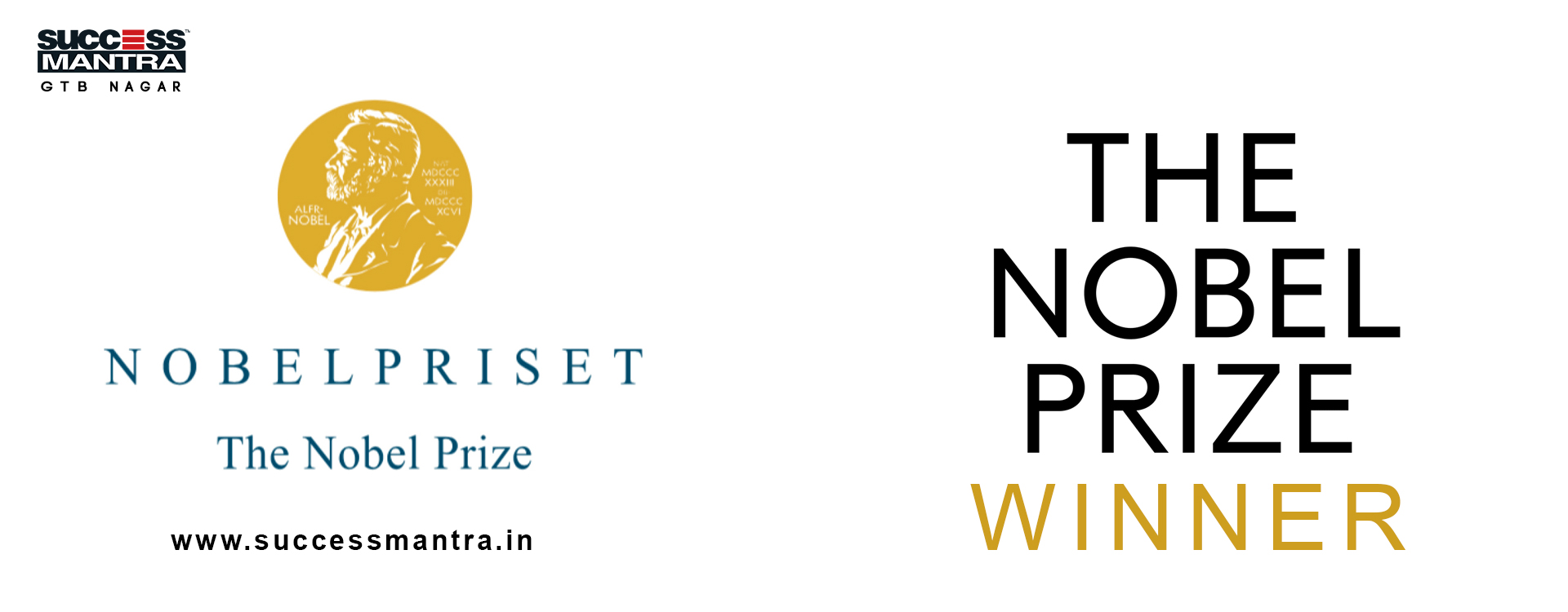
NOBEL PRIZE 2019
ALFRED NOBEL
Alfred Nobel was an inventor, entrepreneur, scientist and businessman who also wrote poetry and drama. His varied interests are reflected in the prize he established and which he lay the foundation for in 1895 when he wrote his last will, leaving much of his wealth to the establishment of the prize.
Since 1901, the Nobel Prize has been honoring men and women from around the world for outstanding achievements in physics, chemistry, physiology or medicine, literature and for work in peace.
Alfred Nobel signed his last will in Paris on November 27, 1895. He specified that the bulk of his fortune should be divided into five parts and to be used for prizes in physics, chemistry, physiology or medicine, literature and peace to “those who, during the preceding year, shall have conferred the greatest benefit to humankind.”
In 1968, Sveriges Riksbank (Sweden’s central bank) established The Sveriges Riksbank Prize in Economic Sciences in Memory of Alfred Nobel.
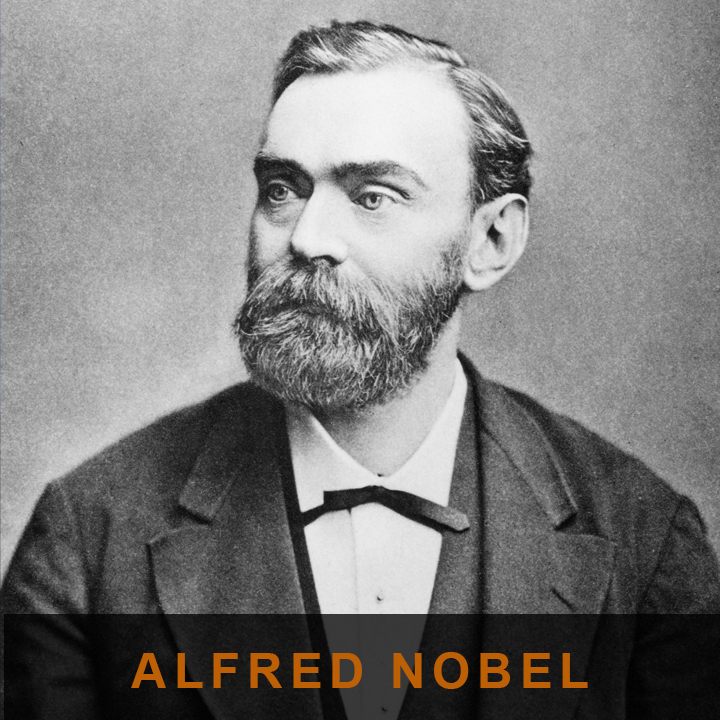
Between 1901 and 2019, the Nobel Prizes and the Prize in Economic Sciences were awarded 597 times.
In the statutes of the Nobel Foundation it says: “A prize amount may be equally divided between two works, each of which is considered to merit a prize. If a work that is being rewarded has been produced by two or three persons, the prize shall be awarded to them jointly. In no case may a prize amount be divided between more than three persons.”
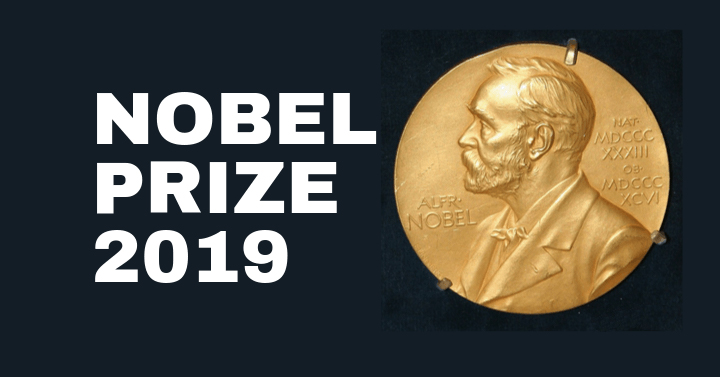
PHYSICS PRIZE
“The said interest shall be divided into five equal parts, which shall be apportioned as follows: /- - -/ one part to the person who shall have made the most important discovery or invention within the field of physics ...” (Excerpt from the will of Alfred Nobel)
Physics was the prize area which Alfred Nobel mentioned first in his will from 1895. At the end of the nineteenth century, many people considered physics as the foremost of the sciences, and perhaps Nobel saw it this way as well. His own research was also closely tied to physics.
The Nobel Prize in Physics is awarded by The Royal Swedish Academy of Sciences, Stockholm, Sweden.
The Nobel Prize in Physics 2019
New perspectives on our place in the universe
The Nobel Prize in Physics 2019 rewards new understanding of the universe’s structure and history, and the first discovery of a planet orbiting a solar-type star outside our solar system. This year’s Laureates have contributed to answering fundamental questions about our existence. What happened in the early infancy of the universe and what happened next? Could there be other planets out there, orbiting other suns?

The 2019 Physics Laureates
The 2019 Nobel Prize in Physics are awarded ”for contributions to our understanding of the evolution of the universe and Earth’s place in the cosmos”, with one half to Jim Peebles “for theoretical discoveries in physical cosmology” and the other half jointly to Michel Mayor and Didier Queloz “for the discovery of an exoplanet orbiting a solar-type star.”
CHEMISTRY PRIZE
“The said interest shall be divided into five equal parts, which shall be apportioned as follows: /- - -/ one part to the person who shall have made the most important chemical discovery or improvement...” (Excerpt from the will of Alfred Nobel.)
Chemistry was the most important science for Alfred Nobel’s own work. The development of his inventions as well as the industrial processes he employed were based upon chemical knowledge. Chemistry was the second prize area that Nobel mentioned in his will.
The Nobel Prize in Chemistry is awarded by The Royal Swedish Academy of Sciences, Stockholm, Sweden.
The Nobel Prize in Chemistry 2019
They created a rechargeable world
The Nobel Prize in Chemistry 2019 rewards the development of the lithium-ion battery. This lightweight, rechargeable and powerful battery is now used in everything from mobile phones to laptops and electric vehicles. It can also store significant amounts of energy from solar and wind power, making possible a fossil fuel-free society.

The 2019 Chemistry Laureates
The 2019 Nobel Prize in Chemistry are awarded to John Goodenough, M. Stanley Whittingham and Akira Yoshino “for the development of lithium-ion batteries”. Through their work, they have created the right conditions for a wireless and fossil fuel-free society, and so brought the greatest benefit to humankind.
MEDICINE PRIZE
“The said interest shall be divided into five equal parts, which shall be apportioned as follows: /- - -/ one part to the person who shall have made the most important discovery within the domain of physiology or medicine ...” (Excerpt from the will of Alfred Nobel)
Alfred Nobel had an active interest in medical research. Through Karolinska Institutet, he came into contact with Swedish physiologist Jöns Johansson around 1890. Johansson worked in Nobel’s laboratory in Sevran, France during a brief period the same year. Physiology or medicine was the third prize area Nobel mentioned in his will.
The Nobel Prize in Physiology or Medicine is awarded by the Nobel Assembly at Karolinska Institutet, Stockholm, Sweden.
The Nobel Prize in Physiology or Medicine 2019
Sensing oxygen levels
This year’s Nobel Laureates revealed the mechanism for one of life’s most essential adaptive processes. They established the basis for our understanding of how oxygen levels affect cellular metabolism and physiological function. Their discoveries have also paved the way for promising new strategies to fight anemia, cancer and many other diseases.

The 2019 Medicine Laureates
The 2019 Nobel Prize in Physiology or Medicine is awarded jointly to William G. Kaelin Jr, Sir Peter J. Ratcliffe and Gregg L. Semenza “for their discoveries of how cells sense and adapt to oxygen availability.” They identified molecular machinery that regulates the activity of genes in response to varying levels of oxygen.
LITERATURE PRIZE
“The said interest shall be divided into five equal parts, which shall be apportioned as follows: /- - -/ one part to the person who shall have produced in the field of literature the most outstanding work in an ideal direction ...” (Excerpt from the will of Alfred Nobel)
Alfred Nobel had broad cultural interests. During his early youth, he developed his literary interests which lasted throughout his life. His library consisted of a rich and broad selection of literature in different languages. During the last years of his life, he tried his hand as an author and began writing fiction. Literature was the fourth prize area Nobel mentioned in his will.
The Nobel Prize in Literature is awarded by The Swedish Academy, Stockholm, Sweden.
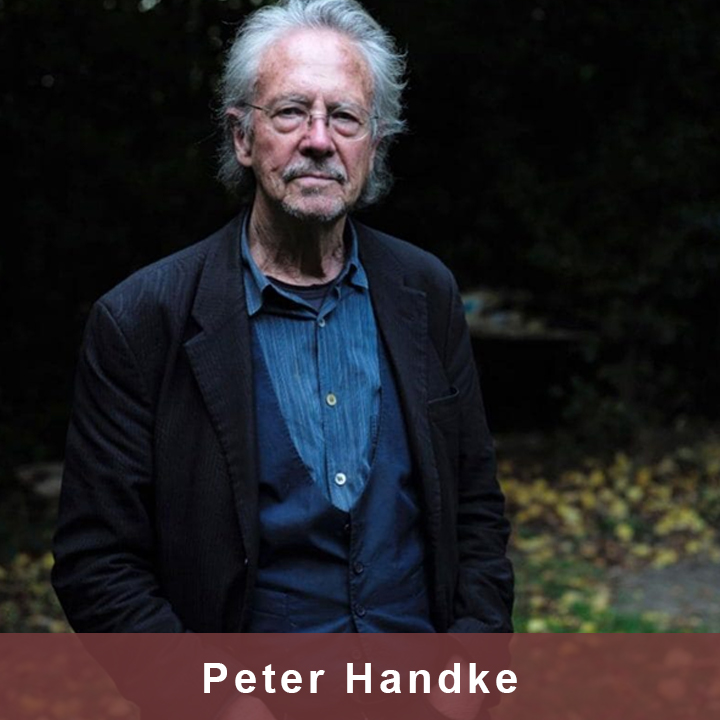
Nobel Prize in Literature 2019
Peter Handke
The Nobel Prize in Literature for 2019 is awarded to the Austrian author Peter Handke "for an influential work that with linguistic ingenuity has explored the periphery and the specificity of human experience."
PEACE PRIZE
“The said interest shall be divided into five equal parts, which shall be apportioned as follows: /- - -/ one part to the person who shall have done the most or the best work for fraternity between nations, the abolition or reduction of standing armies and for the holding and promotion of peace congresses.” (Excerpt from the will of Alfred Nobel)
Alfred Nobel showed a big interest in social issues and was engaged in the peace movement. His acquaintance with Bertha von Suttner, who was a driving force in the international peace movement in Europe and later awarded the Peace Prize, influenced his views on peace. Peace was the fifth and final prize area that Nobel mentioned in his will. The Nobel Peace Prize is awarded by a committee elected by the Norwegian Parliament (Stortinget).
The Nobel Peace Prize 2019
Promoting peace and reconciliation
Ethiopian Prime Minister Abiy Ahmed Ali is awarded the 2019 Nobel Peace Prize for his important work to promote reconciliation, solidarity and social justice. The prize is also meant to recognise all the stakeholders working for peace and reconciliation in Ethiopia and in the East and Northeast African regions.
Abiy Ahmed Ali has initiated important reforms that give many citizens hope for a better life and a brighter future. The Norwegian Nobel Committee believes it is now that Abiy Ahmed’s efforts deserve recognition and need encouragement.
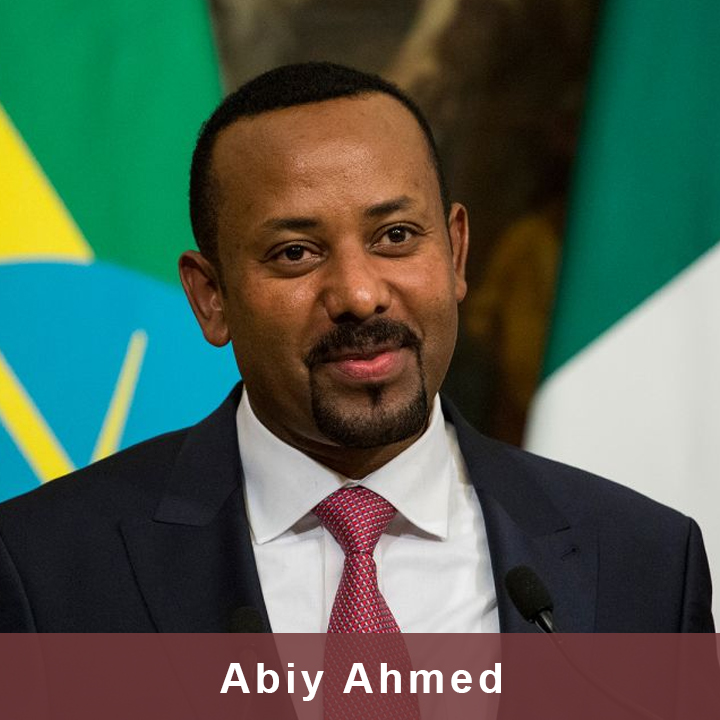
The 2019 Nobel Peace Prize Laureate
2019 Peace Prize Laureate Abiy Ahmed Ali is Prime Minister of the Federal Democratic Republic of Ethiopia since April 2018. He was born in Beshasha, Ethiopia.
Abiy Ahmed Ali is the first Ethiopian to be awarded a Nobel Prize. This year's prize is also the 100th Nobel Peace Prize.
ECONOMIC SCIENCES PRIZE
In 1968, Sveriges Riksbank (Sweden’s central bank) established the Prize in Economic Sciences in Memory of Alfred Nobel, founder of the Nobel Prize. The Prize is based on a donation received by the Nobel Foundation in 1968 from Sveriges Riksbank on the occasion of the Bank’s 300th anniversary. The first Prize in Economic Sciences was awarded to Ragnar Frisch and Jan Tinbergen in 1969.
The Prize in Economic Sciences is awarded by The Royal Swedish Academy of Sciences, Stockholm, Sweden, according to the same principles as for the Nobel Prizes that have been awarded since 1901.
Research to help the world’s poor
The research conducted by this year’s Laureates has considerably improved our ability to fight global poverty. In just two decades, their new experiment-based approach has transformed development economics, which is now a flourishing field of research.

The 2019 Laureates in Economic Sciences
The Royal Swedish Academy of Sciences has decided to award the Sveriges Riksbank Prize in Economic Sciences in Memory of Alfred Nobel 2019 to Abhijit Banerjee, Esther Duflo and Michael Kremer “for their experimental approach to alleviating global poverty.” The laureates have played a decisive role in reshaping research in development economics. Their research has already helped in alleviating global poverty and has great potential to further improve the lives of the most impoverished people on the planet.












ashu
nice post.....
Arpna Rani
Congratulations to all
Rimjhim
Thanks for sharing a nice piece of info.